
OR
Sri Lanka official: Most bombers were highly educated
Published On: April 24, 2019 05:30 PM NPT By: Associated Press
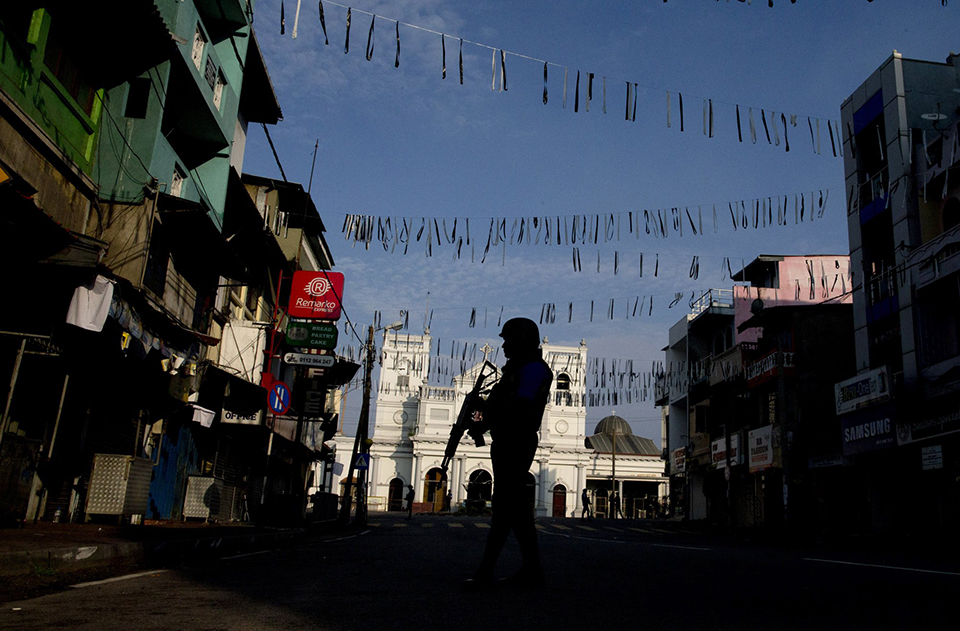
COLOMBO, April 24: Many of the suicide bombers who killed more than 350 people in a series of coordinated Easter Sunday attacks in Sri Lanka were highly educated and came from middle- and upper-middle-class families, the junior defense minister said Wednesday.
The attackers were breakaway members of a pair of obscure extremist Muslim groups, he said. Officials had earlier blamed one extremist group for the bombings.
“Their thinking is that Islam can be the only religion in this country,” junior Defense Minister Ruwan Wijewardene told reporters. “They are quite well-educated people,” he said, adding that at least one had a law degree and some may have studied in the UK and Australia.
The news came as leaders vowed to overhaul the country’s security apparatus after a series of intelligence lapses.
U.S. Ambassador Alaina Teplitz told reporters that “clearly there was some failure in the system,” but said the U.S. had no prior knowledge of a threat before the bombings. Sri Lankan officials have acknowledged that some of the country’s security units were aware of possible attacks before the Easter bombings, the worst violence the South Asian island nation has seen since its civil war ended a decade ago, but did not share those warnings widely.
Teplitz called that breakdown in communication “incredibly tragic.”
Government statements about the attacks have been confused and sometimes contradictory, with police spokesman Ruwan Gunasekara telling reporters Wednesday that there were nine suicide bombers — two more than officials said one day earlier.
One of the additional suicide bombers is the wife of another bomber, Gunasekara said. The woman, two children and three policemen died in an explosion as authorities closed in on her late Sunday, hours after the initial attacks against three churches and three hotels. The ninth suicide bomber has not been identified, though two more suspects were killed in a later explosion on the outskirts of Colombo.
Gunasekara said 60 people have been arrested so far. Teplitz said a team of FBI agents and U.S. military officials were helping in the investigation.
The Islamic State group has claimed responsibility for the hotel and church attacks and released images that purportedly show those seven bombers. The group’s Aamaq news agency released an image purported to show the leader of the attackers, standing amid seven others whose faces are covered. The group did not provide any other evidence for its claim.
The Islamic State group, which has lost all the territory it once held in Iraq and Syria, has made a series of unsupported claims of responsibility for various attacks around the world.
The government has said the seven main bombers were all Sri Lankans but Prime Minister Ranil Wickremesinghe said investigators were still working to determine the extent of the bombers’ foreign links.
Sri Lankan authorities had earlier blamed a local extremist group, National Towheed Jamaar, whose leader, alternately named Mohammed Zahran or Zahran Hashmi, became known to Muslim leaders three years ago for his incendiary speeches online. On Wednesday, Wijewardene said the attackers had broken away from National Towheed Jamaar and another group, which he identified only as “JMI.”
Teplitz declined to discuss whether U.S. officials had heard of National Towheed Jamaar or its leader before the attack. “If we had heard something, we would have tried to do something about this,” Teplitz said.
The country has been on heightened alert since the attacks. On Wednesday, police set off a controlled explosion after finding a suspicious motorcycle parked near a popular Colombo movie theater. No bomb was found in the motorcycle.
On Tuesday, in an address to Parliament, Wijewardene said “weakness” within Sri Lanka’s security apparatus led to the failure to prevent the nine bombings.
“By now it has been established that the intelligence units were aware of this attack and a group of responsible people were informed about the impending attack,” Wijewardene said. “However, this information has been circulated among only a few officials.”
In a live address to the nation late Tuesday, President Maithripala Sirisena said he also was kept in the dark on the intelligence about the planned attacks and vowed to “take stern action” against the officials who failed to share the information. He also pledged “a complete restructuring” of the security forces.
On Wednesday, Wijewardene also backed away from his Tuesday comments that the bombings were retaliation for the March 15 mosque shootings in Christchurch, New Zealand, that killed 50 people. He told reporters Wednesday that the mosque attack may have been a motivation for the bombings, but that there was no direct evidence of that.
An Australian white supremacist was arrested in the Christchurch shootings.
The history of Buddhist-majority Sri Lanka, a country of 21 million including large Hindu, Muslim and Christian minorities, is rife with ethnic and sectarian conflict.
In a 26-year civil war, the Tamil Tigers rebel army had little history of targeting Christians and was crushed by the government in 2009. Anti-Muslim bigotry fed by Buddhist nationalists has swept the country recently but Sri Lanka has no history of Islamic militancy. Its small Christian community has seen only scattered incidents of harassment.
You May Like This

Mysterious disease killing dogs in Norway
HELSINKI, Sept 8: Norwegian authorities haven’t been able to detect the cause behind an unexplained disease that is estimated to... Read More...
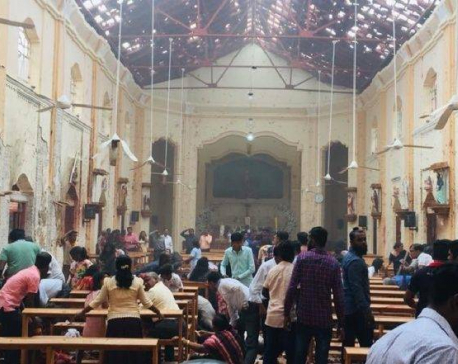
Sri Lanka bombing victims were from at least 12 countries
COLOMBO, April 23: More than 300 people were killed in bombings of churches and hotels in Sri Lanka on Easter Sunday. Sri... Read More...

Sri Lanka attacks carried out by suicide bombers: investigator
COLOMBO, April 22: Seven suicide bombers took part in the devastating attacks on churches and luxury hotels in Sri Lanka... Read More...



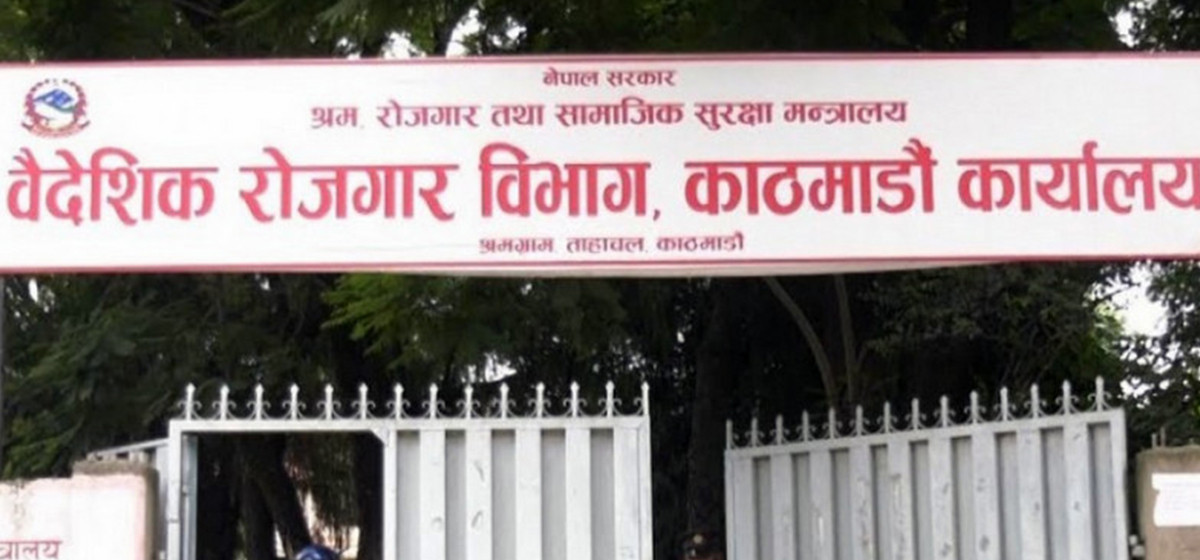
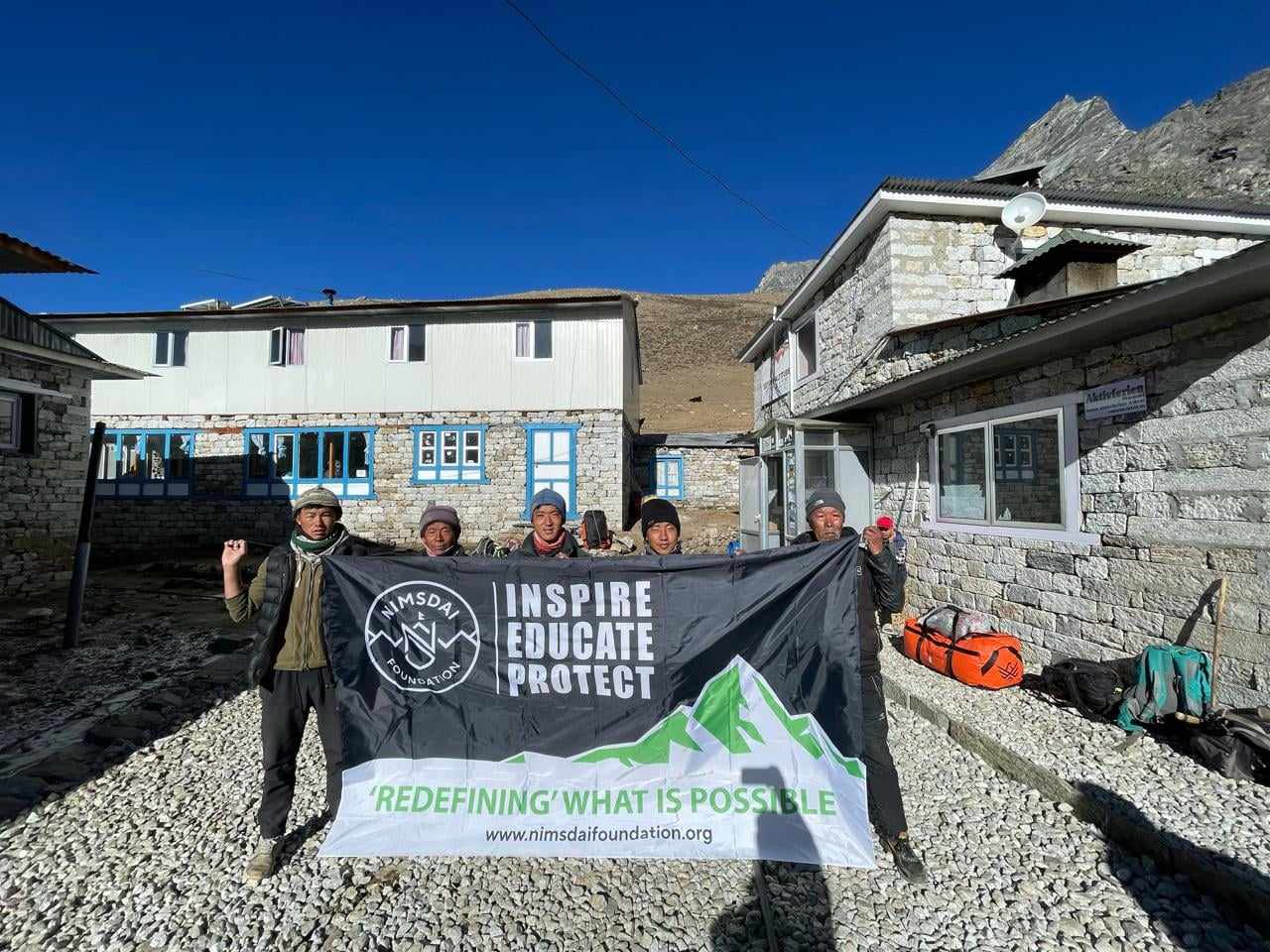

Just In
- Govt should not look for enforcing populist budget for next FY: Former finance ministers
- DoFE requests relevant parties to provide essential facilities to foreign workers traveling abroad
- Foundation stone laid for building a school in Darchula with Indian financial assistance
- 151 projects to be showcased for FDI in Third Investment Summit
- Police disclose identity of seven individuals arrested with almost 2 kg gold and more than Rs 10 million in cash
- NIMSDAI Foundation collaborates with local govt for Lobuche Porter’s Accommodation Project
- Home Ministry directs recalling security personnel deployed for personal security against existing laws
- Fake Bhutanese refugee case: SC orders continued pre-trial detention for seven individuals including former DPM Rayamajhi









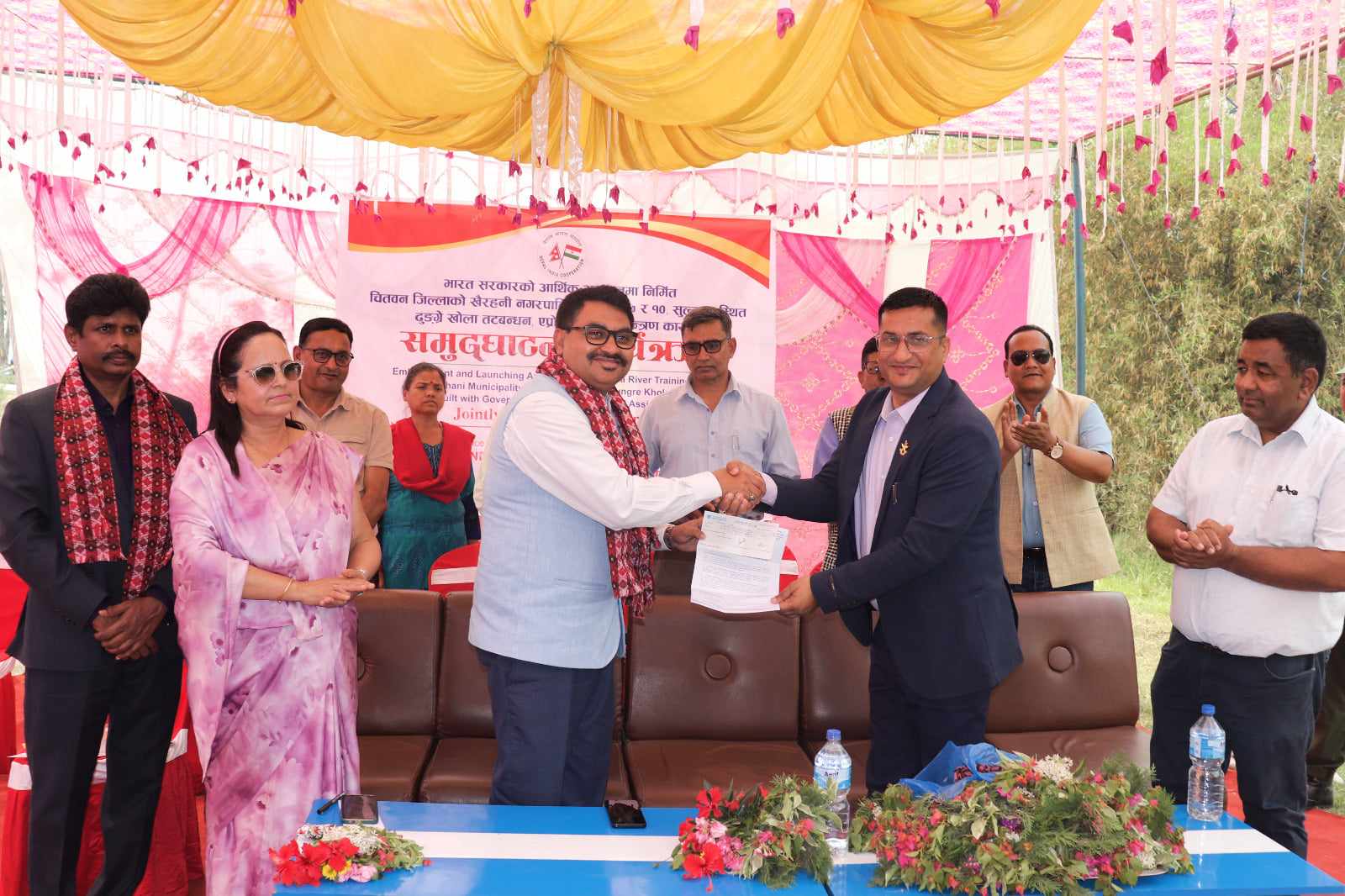


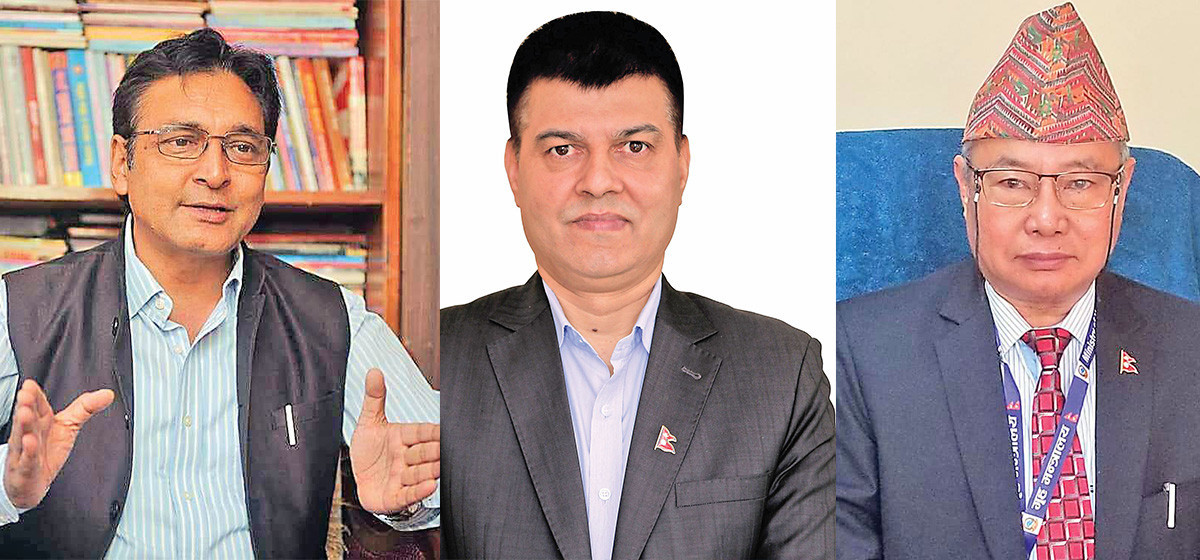
Leave A Comment